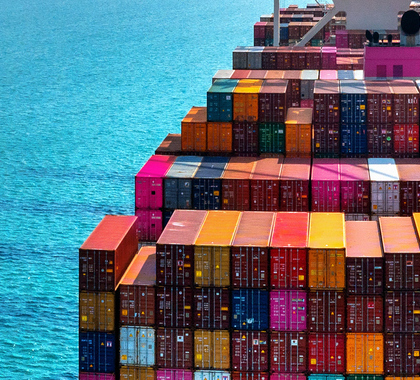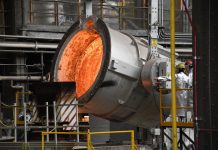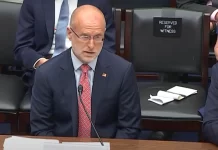America’s dependence on imports for essential goods could lead to economic stagnation because we have not developed alternatives.
America has chosen to meet society’s demands for products by continually increasing supplies from foreign sources, but those choices are backfiring on the American economy.
Shortages of the following may be leading to the new norm of shortages and inflation:
-
Neon -the gas crucial to manufacturing electronic chips.
-
Urea – the ingredient to make the EPA required Diesel Exhaust Fluid (DEF) additive for all diesel vehicles.
-
Refineries – projections of 20 percent closures over the next 5 years of these aging infrastructures will result in less manufacturing to meet growing demands.
-
Oil – The U.S. is following California to be totally dependent on foreign countries to meet the demands within its borders.
NEON
Neon is an important component in the lasers that etch semiconductors. Like krypton and xenon, it is a by-product of steel manufacturing. Steel producers separate air to control levels of oxygen and nitrogen delivered to the blast furnace. This involves the fractional distillation of liquid air.
Neon is important to the manufacture of semiconductor chips but is not present in the chips. It doesn’t directly touch the silicon during manufacturing. Neon helps make the deep ultraviolet (DUV) light used in the photolithographic process that patterns semiconductors. Neon plays a vital role in excimer lasers.
Ukraine produces around 70 percent of global neon gas exports, and a purified version of that gas is so crucial to the semiconductor industry that the Russia-Ukraine war threatens to disrupt supplies and make the ongoing microchip shortage even worse.
With a lack of excitement in America to get back into steel manufacturing, chip shortages may be the new norm with limited neon from a reduction of steel manufacturing in Ukraine.
UREA
If you are not a trucker, RV owner, or farmer, you may not even know what DEF fluid is. It is Diesel Exhaust Fluid. Every diesel vehicle made since 2010 is required by the EPA to use it. It is a product made of 67 percent Urea fertilizer and 33 percent distilled water.
A worldwide shortage of the primary ingredient of urea in DEF (Diesel Exhaust Fluid), is looming. And while this may not sound important, it could have a significant impact on America’s trucking, RV industry, and agriculture.
Diesel Exhaust Fluid (DEF) is an emissions control liquid required by modern diesel engines. It is injected into the exhaust stream. DEF is never added to diesel fuel. It is a non-hazardous solution of 32.5 percent urea in 67.5 percent de-ionized water. DEF is clear and colorless and looks exactly like water. It has a slight smell of ammonia, like some home cleaning agents. DEF is used by Selective Catalytic Reduction (SCR) technology to remove harmful NOx emissions from diesel engines.
Modern diesels require the injection of DEF — diesel exhaust fluid — into the exhaust stream to meet current exhaust emissions standards. Unfortunately, the main component of DEF is urea (along with de-ionized water), a byproduct of industrial ammonia production. And the largest exporter of urea is Russia, currently engaged in a war with Ukraine and, consequently, facing worldwide sanctions.
To make matters worse, urea also is a key ingredient in fertilizer, which has skyrocketed in cost due to the pandemic and shipping slowdowns. In fact, China — the previous No. 4 urea exporter — has at least temporarily stopped exporting the chemical to meet agricultural demands in its own country.
Shortages of trucking and new crops may be the new norm as Russia and China are two of the largest exporters of Urea by a wide margin. Both Russia and China have decided to no longer export Urea.
REFINERIES
In 2019, of the almost 700 oil refineries in the world, there were 135 refineries in the U.S. but five U.S. facilities were shuttered during the last two years.
In the last few years, two of those were in California (Phillips66 at Rodeo and Marathon at Martinez) that once manufactured many products, are now only focusing on renewable diesel. If the courts uphold the recent Bay Area Air Quality Management (BAAQMD) rule for a further reduction in particulate emissions, both the Chevron Refinery at Richmond and the PBF Refinery at Martinez have stated that they will shut down before spending one billion dollars to retrofit their refineries to comply with further particulate emission reductions.
With the potential loss of two more refineries, Northern California’s gasoline and jet fuel to supply military bases, major airports in San Francisco, Oakland, San Jose, and Sacramento will be imported from China, along with many other products that shuttered California refineries are no longer manufacturing.
Each refinery location is a business that needs to make business decisions. Consequently, one in five oil refineries are expected to cease operations over the next five years. One in five is 20 percent, or more than 20 refineries expected to be shuttered just in the U.S. resulting in a decline in the products manufactured to meet the ever-increasing demands from society.
There are over 100 new refineries under construction, with most of them in Asia with 88, Europe with 12 and North America with 10. Asia is the region with the greatest number of future petroleum refineries. As of 2021, there were 88 new facilities in planning or under construction in Asia.
With a lack of excitement in America to construct new refineries to replace the aging ones being shuttered, China is on track to succeed the United States as the country with the greatest oil refinery throughput.
Since crude oil is useless unless it can be manufactured into something usable, shortages of refineries to manufacture crude oil into fuels and products may be the new norm.
OIL
Presiding over this growing collection of catastrophes and climate hysteria in America is 79-year-old president, Joseph R. Biden, Jr. A year before being inaugurated President in 2021, Biden professed that “we are going to get rid of fossil fuels. Before the recent inauguration, America achieved for the first time since Harry Truman was president about 70 years ago, to finally become crude oil independent and no longer held hostage to unstable Petro-powers and the vagaries of foreign crude oil supplies. 79-year old John Kerry, the U.S. Special Presidential Envoy for Climate recently said “we absolutely don’t” need to drill for more fossil fuels.
America, under current leadership, is attempting to clone California and be almost totally dependent of foreign suppliers for its crude oil demands but restricting the supply of crude oil to be manufactured to meet the increasing demands of society is a guarantee to be the new norm for shortages and inflation.
America has chosen to meet its society’s demands for products by continually increasing its dependence on foreign sources, with no contingency plans for supply replacements for: neon for chips, urea for DEF fluid, products manufactured at refineries, and crude oil, but those choices are backfiring on the American economy.
First published at CFACT. For more Budget & Tax News.











 EV Dangers Daily Becoming More Evident...
EV Dangers Daily Becoming More Evident...
[…] post America’s Dependence on Imports Could Stagnate Economy appeared first on Heartland Daily […]